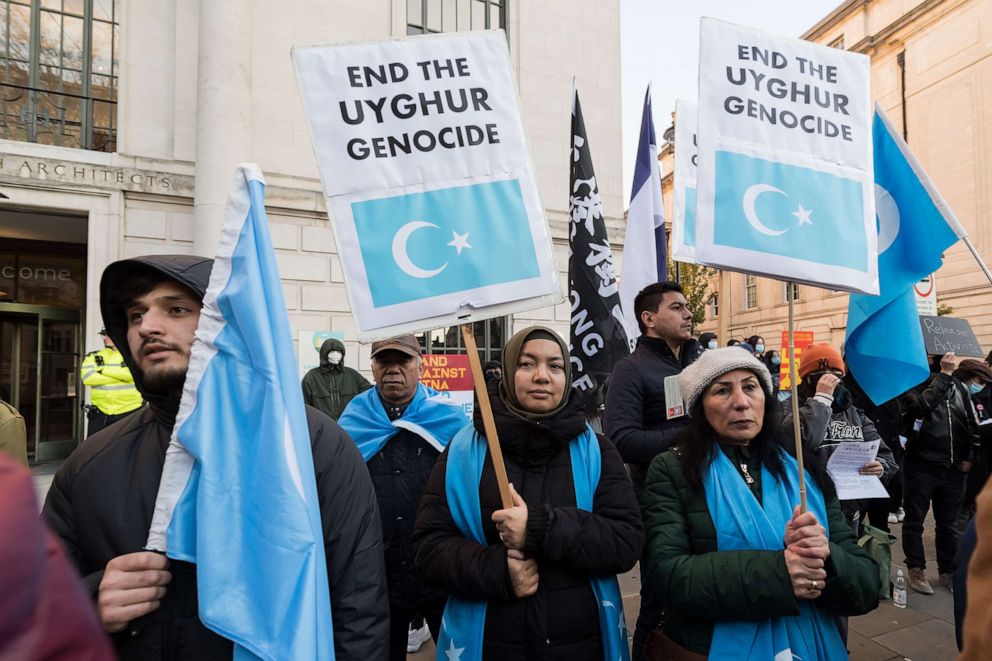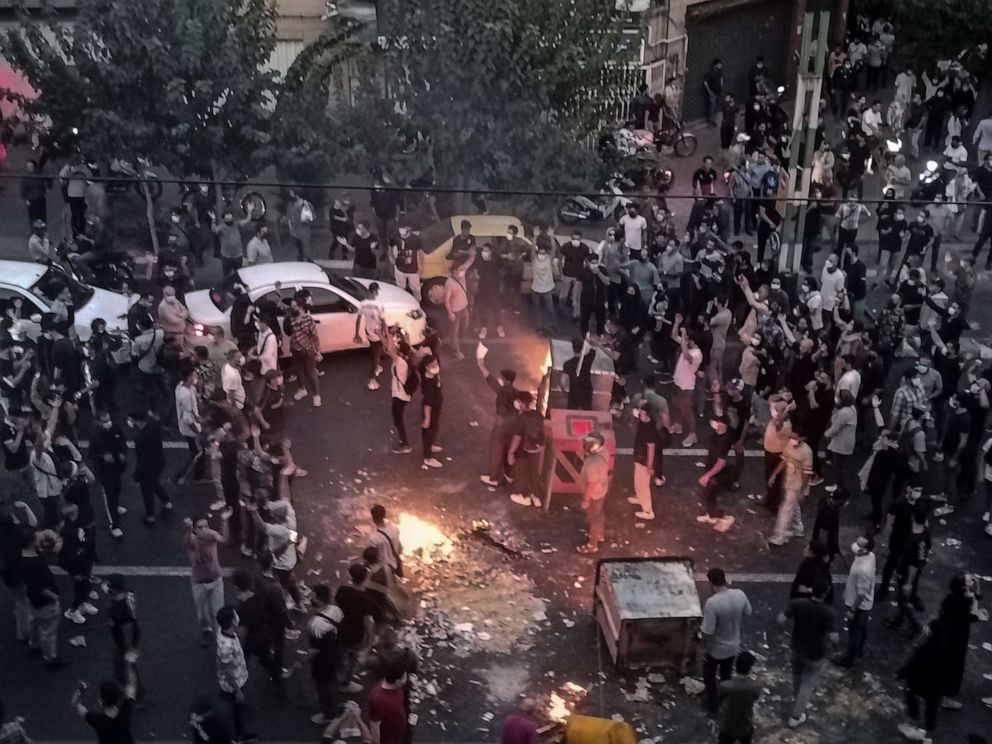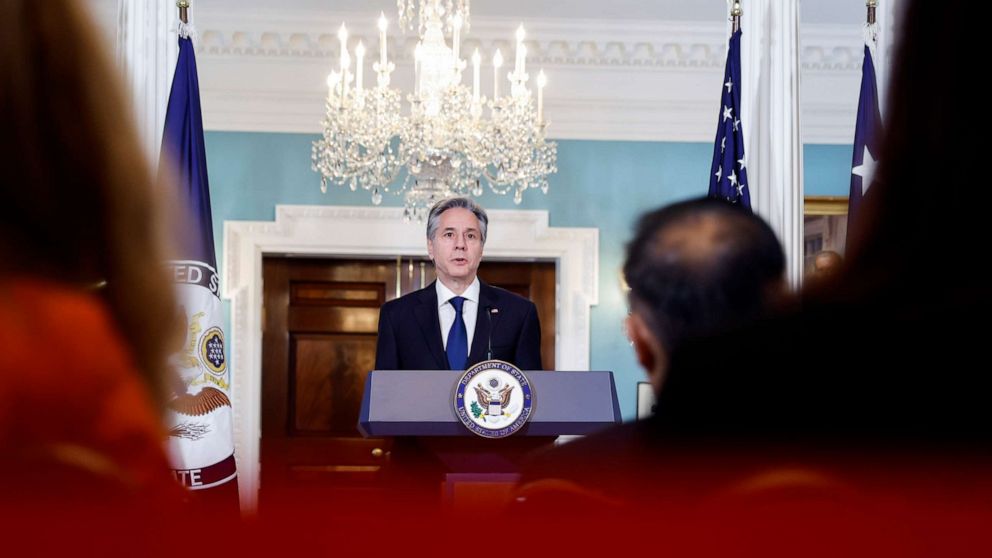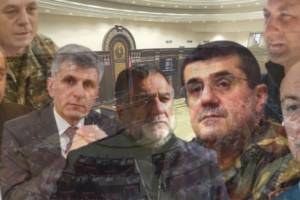The State Department’s latest survey of religious freedom around the world shows that conditions in some of the most oppressive nations around the world are growing even more dire as well as new, troubling trends, Secretary of State Antony Blinken said on Monday.
“Governments in many parts of the world continue to target religious minorities using a host of methods, including torture, beatings, unlawful surveillance, and so-called re-education camps,” he said.
Blinken underscored abuses against the predominately Muslim Uyghur minority group in the Xinjiang province of China, a country one senior State Department official described as “one of the worst abusers of human rights and religious freedom in the world.”

Anadolu Agency via Getty Images
The U.S. has previously determined that Beijing’s treatment of the Uyghurs amounts to genocide and crimes against humanity, and the report, which covers the year 2022, said that persecution has continued steadily.
Although data is limited, the survey also noted that the Chinese Communist Party has significantly and broadly cracked down on religious freedom over the course of the year, and that the number of people imprisoned for their spiritual beliefs was estimated to range between the low thousands to perhaps over 10,000.
Chinese government officials have denied all allegations of human rights abuses and attempted to justify actions against Uyghurs as counterterrorism measures.

Blinken also addresses Iran’s Islamic theocracy, which imposes draconian restrictions on its population and brutal punishments for offenses, as well as the ongoing wave of demonstrations inspired by the death of a teenager last September.
“People across Iran, led by young women, continue peaceful protests demanding their human rights, including freedom of religion, galvanized by the killing of Mahsa Amini, who was arrested by the so-called morality police because her hijab did not fully cover her hair,” he said.
The report emphasizes that the movement has come with steep costs. Referencing statistics from human rights groups working in Iran, it says that in the months of 2022 after Amini’s death, government security forces killed 512 protestors, including 69 children, arrested 19,204 individuals and executed at least one person linked to the demonstrations on the charge of “enmity against God.”
The survey, which is required by law to be compiled and submitted to Congress annually, also expressed a number of concerns about conditions in India—a country not currently designated by the State Department as a “Country of Particular Concern” for severe violations of religious freedom. Among the issues listed are legal prohibitions against conversions in multiple states, accusations of systemic discrimination against Muslims, and attacks on religious minorities–including “cow vigilantism” against non-Hindus based on allegations of cow slaughter or trade in beef.
“We’re continuing to encourage the government to condemn violence and hold accountable and protect all groups who engage in rhetoric that’s dehumanizing towards religious minorities and all groups who engage in violence against religious communities and other communities in India,” a senior State Department official advised reporters.
Additionally, the report outlined widespread violations against religious freedom perpetrated by Moscow, both in Russia and in occupied areas of Ukraine.

“Authorities continued to investigate, detain, imprison, torture, physically abuse persons, and seize their property because of their religious belief or affiliation or membership in groups designated “extremist,” “terrorist,” or “undesirable,” including Jehovah’s Witnesses, the Mejlis of the Crimean Tatars, Hizb ut-Tahrir, Tablighi Jamaat, followers of Turkish Muslim theologian Said Nursi, the Church of Scientology, Falun Gong, and multiple evangelical Protestant groups,” the report says, adding that individuals have been reportedly subjected to long terms in labor camps, torture, home searches, and other mistreatment.
The report also said that even members of the Russian Orthodox Church were not completely protected, noting some were “fined or banned from continuing in their religious duties” after criticizing Russia’s invasion of Ukraine.
In Crimea and other areas of Ukraine under Russian rule, the report said there was abundant evidence that authorities “have committed widespread, ongoing, and egregious violations of the right to freedom of religion and conscience as well as physical and psychological abuse of
But Blinken also said across the globe, the report captured examples of progress, citing Belgium formally recognizing its Buddhist minority, lawmakers in Brazil codifying religious freedom guarantees for Afro-Brazilian indigenous communities, and various countries launching offices to combat islamophobia and antisemitism.
“More broadly, civil society and other concerned governments around the world have successfully secured the release of many who have been detained, even in prison for exercising their freedom of religion or belief,” he said.
Source : ABC News





